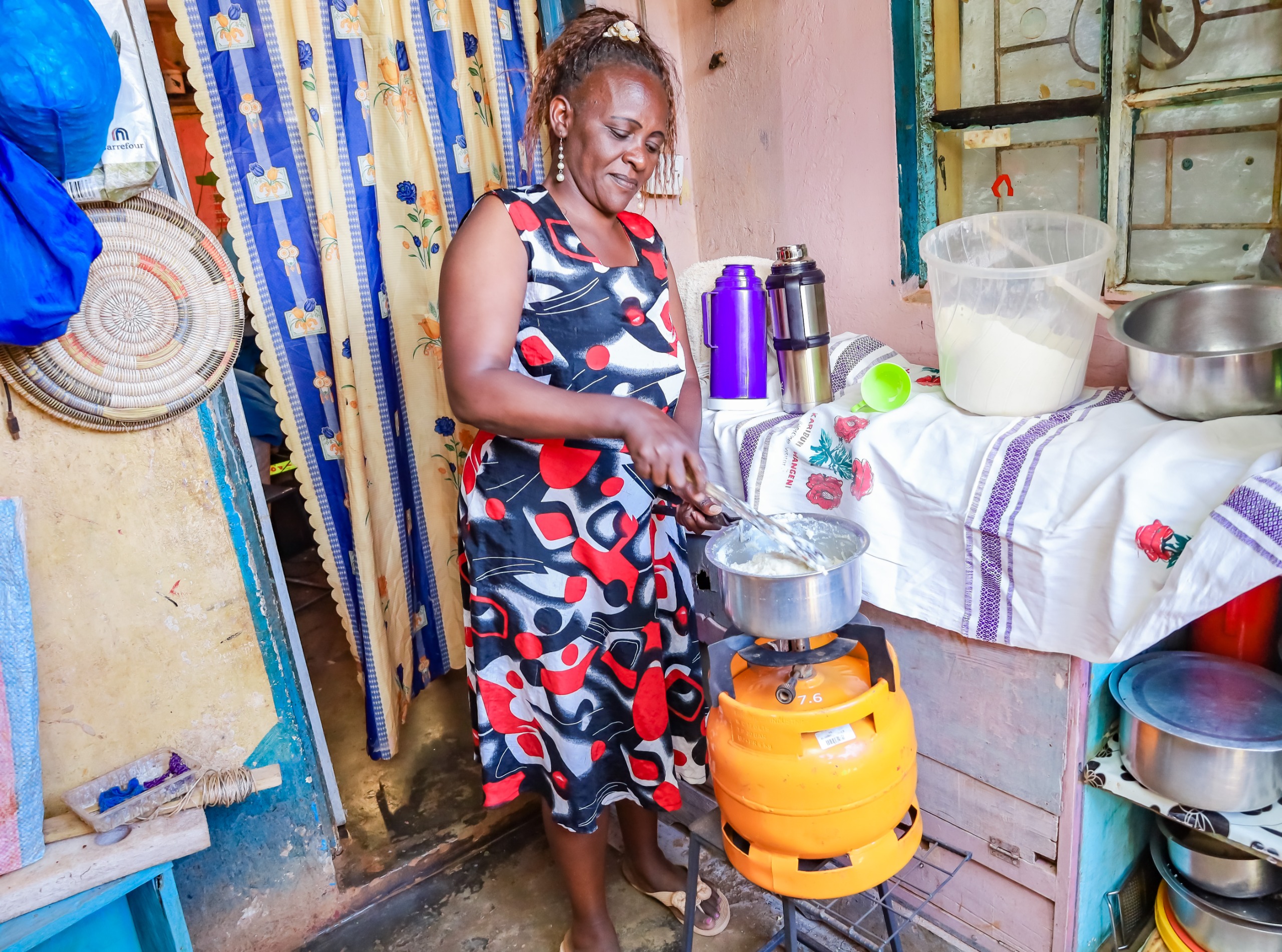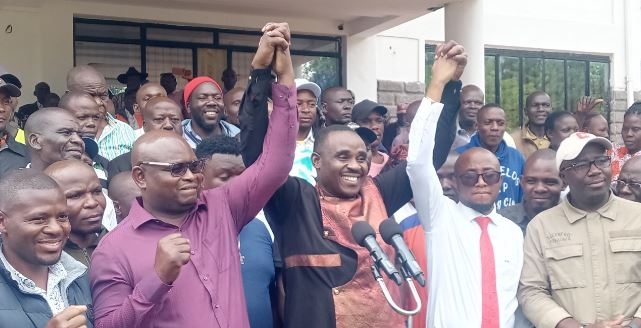
 One of the beneficiaries in Kirinyaga County prepares a meal using a gas cooker, joining over 6,000 families who have transitioned to clean cooking energy under Governor Waiguru’s initiative.?HANDOUT
One of the beneficiaries in Kirinyaga County prepares a meal using a gas cooker, joining over 6,000 families who have transitioned to clean cooking energy under Governor Waiguru’s initiative.?HANDOUTThe push for clean and efficient cooking energy in Kirinyaga County is paying off, with more than 6,000 households successfully transitioning from firewood and charcoal to liquefied petroleum gas.
In just two years, the County Government of Kirinyaga under
Governor Anne Waiguru has distributed more than 6,400 free meko gas
cookers to households.
The move aims to tackle climate change, curb deforestation,
and improve public health. Health experts have praised the initiative for
reducing exposure to Household Air Pollution (HAP), which contributes to
millions of premature deaths each year from pneumonia, lung cancer, and chronic
respiratory diseases.
Despite progress, many residents in Kirinyaga still rely on
traditional biomass—firewood, charcoal, crop residue, and animal waste for
cooking.
Governor Waiguru’s administration is determined to change
that. Through the Financing Locally-Led Climate Action (FLLoCA) programme,
the county distributed 5,800 free Meko gas cookers in June this year, in
addition to 600 others distributed earlier to families living near Mt. Kenya
forest.
The programme’s impact goes beyond cleaner air. It helps reduce tree cutting for firewood and cuts greenhouse gas emissions linked to wood fuel.
Governor Waiguru says the initiative is part of her broader campaign
to promote environmental conservation, climate resilience, and sustainable
livelihoods in the county.
For residents like Hellen Wanjiku from Mjini slum in Kutus
town, the change has been life-changing.
“We are thankful to
Governor Anne Waiguru for giving us these gas cylinders through the FLLoCA
programme for free. I used to cook with charcoal, and the smoke made me cough and
my eyes teary,” she said.
Now, Wanjiku says her mornings are easier. “Getting a
charcoal jiko to light was always a struggle. With gas, cooking is fast, clean,
and stress-free. I no longer have to look for firewood or buy charcoal.”
Similarly, Joyce Munene from Gatuto village said the switch
to gas has made life easier, especially during rainy seasons. “Lighting a fire
with wet firewood used to be a nightmare. Now, it’s just one click, and I’m
already cooking. This is a dream come true,” she said.
Governor Waiguru noted that encouraging rural families to
use LPG could greatly improve their living standards.
“By shifting to clean cooking, we are saving over 500 mature
trees annually and protecting women and children from smoke-related health
problems,” she said.
The county also plans to establish a clean cooking training
program at Kibingoti Polytechnic, where women’s groups will learn to make
energy-saving jikos.
Public Health Officer Margret Wambui emphasised that women
and children are the biggest beneficiaries. “Women are mostly responsible for
cooking, and young children stay close to them. Reducing indoor smoke means
saving lives and improving health,” she said.
County environment CECM James Mutugi added that the program
strengthens community resilience to climate change. “These initiatives empower
our people with real solutions to adapt and grow sustainably,” he said.
Other county-led climate interventions include the establishment of a climate action fund, solid waste management laws, a climate change directorate, training programs, and the Wezesha Kirinyaga project promoting agroforestry and water conservation.













